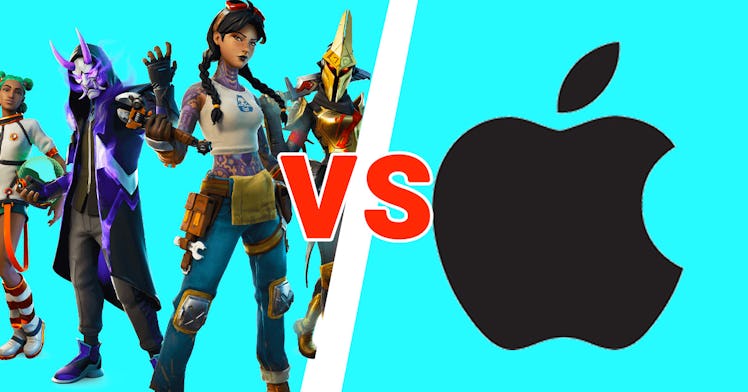Apple’s Crack-Down On Fortnite’s Microtransactions Might Make Sense For Parents
The most popular game in the world just got slapped-down by "the man." But is it all bad?

This week, the popular online game Fornite made the news because both Apple and Google pulled the game from their respective app stores. The reason? Fortnite game developer Epic apparently violated the terms of their contract with Apple and Google because of the way they were making money within the game. This controversy is connected to the concept of “microtransactions”; in-game purchase that often grants the player new abilities or powers. Epic was supposed to be giving Apple 30 percent of all profits, but the in-game workaround meant that wasn’t happening and Epic was getting all the money.
Next to a software giant like Apple, a game developer like Epic is a David fighting a Goliath. Or, rather, that’s the narrative that’s easy to latch onto. Epic has already issued statements likening Apple to an Orwellian Big Brother and using Apple’s old 1984 commercial as a kind of dig against the company. To be sure, Apple’s (and Google’s) motivation here is about money. But, if we take several steps back, that’s true of Epic, too. Game developers like Epic make their money through microtransactions and the people who often suffer are unsuspecting families.
Any parents with tweens or teenagers are probably painfully aware of just how expensive microtransactions in popular online games can get. A BBC story from 2019 noted that one family lost $£3160.58 ($4,137.52) from their son pressing a button which authorized a microtransaction. Back in 2018, some countries (like Belgium) banned game developers from selling “loot boxes” within games specifically because parents were incurring hidden costs, basically, because kids were tricked or pressured into purchasing virtual objects within a given game. One gaming journalist told Fatherly that it can be argued that Fortnite “incentives” kids toward microtransactions because buying a new “skin” for their character is connected with status. In fact, online bullying is often connected to kids not having a non-generic “skin.” This is just one microcosm of how microtransactions can put stress on kids and families. To date, there has been no clear action taken on the part of Epic to reduce this kind of bullying as it relates to microtransactions. In 2019, Josh Hawley of Missouri put forth a bill that would eliminate or curtail loot boxes or other microtransactions within games. To date, the bill has not passed into law, and, obviously, the practice of microtransactions remains prevalent.
The basic defense of microtransactions is that, in essence, they cover the cost of doing business for these game developers. But, if you’re a parent on a budget (even if you’re a gamer) you’re probably not crazy about microtransactions. This makes the battle between Epic and Apple less like David and Goliath, and more like Frankenstein versus Wolfman. They’re both money-hungry monsters, and they both have figured out how to automate payments that our kids don’t understand.
Apple and Google are not necessarily the good guys in this fight. That said, right now, keeping microtransactions in Fortnite away from kids is the unintended result. For parents who don’t want to wrack up unreasonable credit card bills because of Fornite, Apple and Google are actually doing the “right” thing. Even if it is for the wrong reasons.